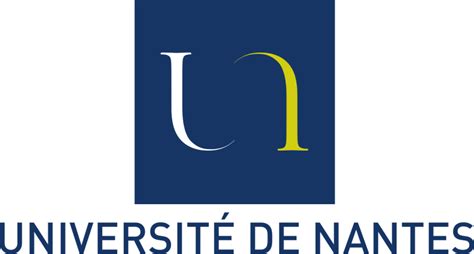De Novo Variants in the F-Box Protein FBXO11 in 20 Individuals with a Variable Neurodevelopmental Disorder
Anne Gregor
(1)
,
Lynette Sadleir
,
Reza Asadollahi
,
Silvia Azzarello-Burri
,
Agatino Battaglia
,
Lilian Bomme Ousager
,
Paranchai Boonsawat
,
Ange-Line Bruel
(2)
,
Rebecca Buchert
,
Eduardo Calpena
,
Benjamin Cogné
(3, 4)
,
Bruno Dallapiccola
(5)
,
Felix Distelmaier
,
Frances Elmslie
(6)
,
Laurence Faivre
(7, 2)
,
Tobias B Haack
(8)
,
Victoria Harrison
,
Alex Henderson
(9)
,
David Hunt
,
Bertrand Isidor
(4)
,
Pascal Joset
,
Satoko Kumada
,
Augusta M.A. Lachmeijer
,
Melissa Lees
,
Sally Ann Lynch
(10)
,
Francisco Martinez
,
Naomichi Matsumoto
(11)
,
Carey Mcdougall
,
Heather Mefford
,
Noriko Miyake
(11)
,
Candace Myers
,
Sébastien Moutton
(2, 7)
,
Addie I. Nesbitt
(12)
,
Antonio Novelli
(13)
,
Carmen Orellana
,
Anita Rauch
(14)
,
Monica Rosello
,
Ken Saida
,
Avni B. Santani
(15)
,
Ajoy Sarkar
(16)
,
Ingrid E. Scheffer
(17)
,
Marwan Shinawi
,
Katharina Steindl
,
Joseph Symonds
,
Elaine Zackai
(18)
,
Ddd Study3 University of Washington Center For Mendelian Genomics
,
André Reis
(1)
,
Heinrich Sticht
(19)
,
Christiane Zweier
(1)
1
Institute of Human Genetics [Erlangen, Allemagne]
2 Equipe GAD (LNC - U1231)
3 ITX - ITX - unité de recherche de l'institut du thorax
4 Service de génétique médicale - Unité de génétique clinique [Nantes]
5 Medical Genetics and Pediatric Cardiology
6 St. George's Hospital
7 Centre de génétique - Centre de référence des maladies rares, anomalies du développement et syndromes malformatifs (CHU de Dijon)
8 Institute of Human Genetics
9 Newcastle Upon Tyne Hospitals NHS Trust
10 Temple Street Children's University Hospital [Dublin]
11 YCUSM - Yokohama City University School of Medecine
12 CHOP - Children’s Hospital of Philadelphia
13 IRCCS Ospedale Pediatrico Bambino Gesù = Bambino Gesù Children’s Hospital
14 Institute of Medical Genetics
15 Department of Pathology and Laboratory Medicine [Philadelphia, PA, USA]
16 Nottingham Regional Genetics Service [Nottingham, UK]
17 Departments of Medicine and Paediatrics (Austin Health and Royal Children’s Hospital)
18 Division of Human Genetics, Department of Pediatrics, The Children's Hospital of Philadelphia
19 Bioinformatik, Institut für Biochemie
2 Equipe GAD (LNC - U1231)
3 ITX - ITX - unité de recherche de l'institut du thorax
4 Service de génétique médicale - Unité de génétique clinique [Nantes]
5 Medical Genetics and Pediatric Cardiology
6 St. George's Hospital
7 Centre de génétique - Centre de référence des maladies rares, anomalies du développement et syndromes malformatifs (CHU de Dijon)
8 Institute of Human Genetics
9 Newcastle Upon Tyne Hospitals NHS Trust
10 Temple Street Children's University Hospital [Dublin]
11 YCUSM - Yokohama City University School of Medecine
12 CHOP - Children’s Hospital of Philadelphia
13 IRCCS Ospedale Pediatrico Bambino Gesù = Bambino Gesù Children’s Hospital
14 Institute of Medical Genetics
15 Department of Pathology and Laboratory Medicine [Philadelphia, PA, USA]
16 Nottingham Regional Genetics Service [Nottingham, UK]
17 Departments of Medicine and Paediatrics (Austin Health and Royal Children’s Hospital)
18 Division of Human Genetics, Department of Pediatrics, The Children's Hospital of Philadelphia
19 Bioinformatik, Institut für Biochemie
Lynette Sadleir
- Fonction : Auteur
Reza Asadollahi
- Fonction : Auteur
Silvia Azzarello-Burri
- Fonction : Auteur
Agatino Battaglia
- Fonction : Auteur
Lilian Bomme Ousager
- Fonction : Auteur
Paranchai Boonsawat
- Fonction : Auteur
Rebecca Buchert
- Fonction : Auteur
Eduardo Calpena
- Fonction : Auteur
Benjamin Cogné
- Fonction : Auteur
- PersonId : 776524
- ORCID : 0000-0002-5503-6292
Felix Distelmaier
- Fonction : Auteur
Victoria Harrison
- Fonction : Auteur
David Hunt
- Fonction : Auteur
Pascal Joset
- Fonction : Auteur
Satoko Kumada
- Fonction : Auteur
Augusta M.A. Lachmeijer
- Fonction : Auteur
Melissa Lees
- Fonction : Auteur
Sally Ann Lynch
- Fonction : Auteur
- PersonId : 906359
Francisco Martinez
- Fonction : Auteur
Carey Mcdougall
- Fonction : Auteur
Heather Mefford
- Fonction : Auteur
Candace Myers
- Fonction : Auteur
Carmen Orellana
- Fonction : Auteur
Monica Rosello
- Fonction : Auteur
Ken Saida
- Fonction : Auteur
Marwan Shinawi
- Fonction : Auteur
Katharina Steindl
- Fonction : Auteur
Joseph Symonds
- Fonction : Auteur
Elaine Zackai
- Fonction : Auteur
- PersonId : 905999
Ddd Study3 University of Washington Center For Mendelian Genomics
- Fonction : Auteur
Christiane Zweier
Connectez-vous pour contacter l'auteur
- Fonction : Auteur correspondant
- PersonId : 955536
Connectez-vous pour contacter l'auteur
Résumé
Next-generation sequencing combined with international data sharing has enormously facilitated identification of new disease-associated genes and mutations. This is particularly true for genetically extremely heterogeneous entities such as neurodevelopmental disorders (NDDs). Through exome sequencing and world-wide collaborations, we identified and assembled 20 individuals with de novo variants in FBXO11. They present with mild to severe developmental delay associated with a range of features including short (4/20) or tall (2/20) stature, obesity (5/20), microcephaly (4/19) or macrocephaly (2/19), behavioral problems (17/20), seizures (5/20), cleft lip or palate or bifid uvula (3/20), and minor skeletal anomalies. FBXO11 encodes a member of the F-Box protein family, constituting a subunit of an E3-ubiquitin ligase complex. This complex is involved in ubiquitination and proteasomal degradation and thus in controlling critical biological processes by regulating protein turnover. The identified de novo aberrations comprise two large deletions, ten likely gene disrupting variants, and eight missense variants distributed throughout FBXO11. Structural modeling for missense variants located in the CASH or the Zinc-finger UBR domains suggests destabilization of the protein. This, in combination with the observed spectrum and localization of identified variants and the lack of apparent genotype-phenotype correlations, is compatible with loss of function or haploinsufficiency as an underlying mechanism. We implicate de novo missense and likely gene disrupting variants in FBXO11 in a neurodevelopmental disorder with variable intellectual disability and various other features.
